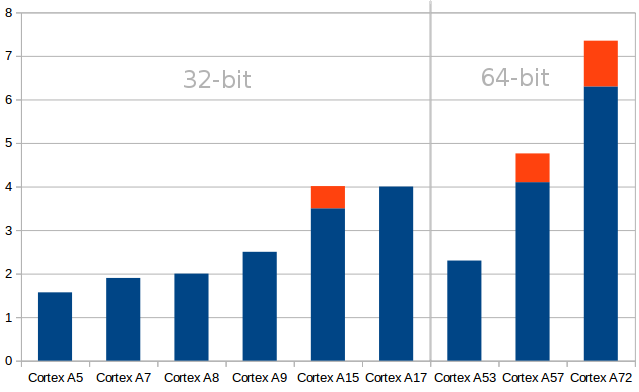FYI....
TinkerOS Debian 2.07 - link below - again, the UK site seems to have the best support for this board...
https://www.asus.com/uk/Single-Board-Computer/Tinker-Board/HelpDesk_Download/
Changes:
TinkerOS_Debian V2.0.7
TinkerOS_Debian V2.0.7
TinkerOS default username is “linaro”, password is “linaro”
Release Notes
*Changelog
1. Merge Upstream/Rockchip (commit: 2801809, tag: release-20171213, kernel: 4.4.103).
2. Update Qt video for Media Player to support repeat function.
3. Improve the HDMI Eye Pattern.
4. Fixed onboard USB audio module missing after resume from suspend.
5. Update U-Boot's UMS name to "TinkerBoard UMS disk".
6. Set the GPIO pins default mode to input mode.
7. Support CAN-Bus.
8. Fixed Tinker Board can not be used as Wi-Fi AP.
9. Add missing spidev nodes when SPI enable.
10. Support Google AIY Voice Kit (v2) HAT sound card.
11. Sync Rockchip package to support display ratio setting.
12. Improve the USB camera performance.
13. Support ADS7846 touch screen for 4"/3.5" HDMI LCD.
14. Set U-Boot only stop the autoboot when triggered the space key.
15. Update rtl8723bs driver.
16. Improve the WiFi roaming fail issue.
17. Fix the warning message when trying to build the Kernel source code.
18. Add back the missing comment of the rk3288-gpiomem.c file.
*ARM Security Update:
1. Meltdown and Spectre
Variant 1: bounds check bypass (CVE-2017-5753)
Variant 2: branch target injection (CVE-2017-5715)
*Tinker CLI and GUI's Configuration Tools (Experimental):
1. Support to enabled/disabled wlan verbose log.
MD5:
bbe7fe5b56c5bb4ce3ebd057b939ebda (zip)
1a723676d5e977096a8fbabf8ef06bc4 (img)


